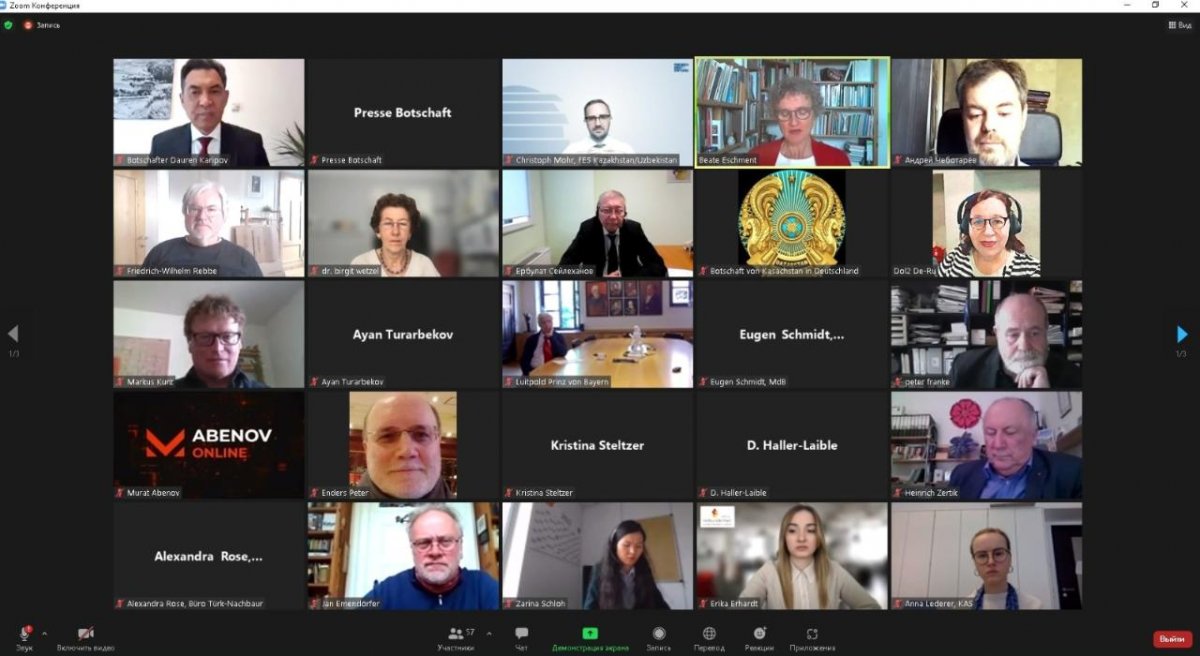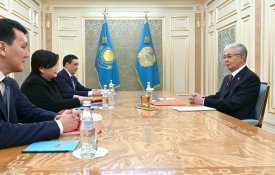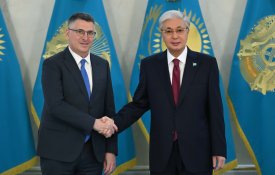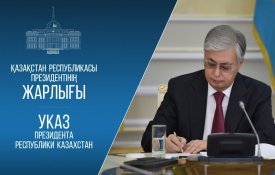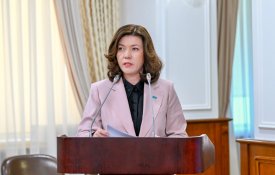In his welcoming speech, Ambassador of Kazakhstan to Germany Dauren Karipov outlined the structural transformation of key political institutions included in the package of amendments to the Constitution, such as holding elections on a mixed proportional-majority basis, decentralization of state power and the gradual development of a culture of local self-government.
In turn, F. Frobart told the round table participants about the mandate of the OSCE Program Office to support the reform process in Kazakhstan and shared information about the work of the Office for Democratic Institutions and Human Rights (ODIHR/OSCE) Referendum Assessment Mission, which recently arrived in our country at the invitation of Ministry of Foreign Affairs of the Republic of Kazakhstan to monitor the plebiscite. “Our OSCE Office positively assesses the reform agenda in the Republic of Kazakhstan and supports their implementation in the country,” the speaker stated, while noting such proposed institutional innovations as the introduction of the right of citizens to directly apply to the Constitutional Court.
Panel discussion with the participation of invited speakers - a public figure, vice-president of the ALE "Civil Alliance of Kazakhstan" Murat Abenov, head of the regional office of the Fund. Friedrich Ebert in Kazakhstan and Uzbekistan Christoph Mohr, political scientist, director of the Alternative Research Center Andrey Chebotarev and researcher at the Center for Eastern European and International Studies Beata Ashment was aimed at an in-depth analysis of the reform agenda and the upcoming referendum on the scale of key global political and economic trends.
Among other things, K. Mor said that the referendum marks an "important step towards true democracy", which will take place in special geopolitical conditions. According to him, despite the fact that "the implementation of reforms is a serious challenge, it is not an obstacle that the Kazakh state is unable to overcome." In her remarks, B. Ashment called on the political and public circles of the Republic of Kazakhstan to pay due attention to the issues of improving state policy in relation to the interests of women and especially young people, who are concerned about the future of Kazakhstan.
At the end of the meeting, the participants of the round table wished success in building a stable and prosperous "New Kazakhstan" and answered questions of interest to the audience.


